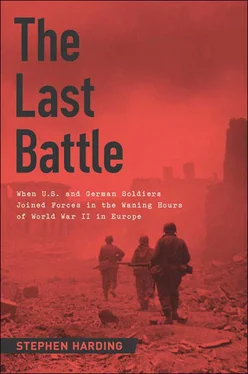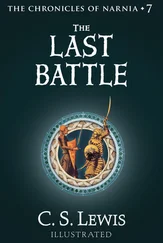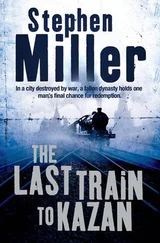Unfortunately for France, when the time came for Gamelin to actually take up the latter position—often referred to as “generalissimo” [68] 21. Italian in origin, “generalissimo” refers to a military commander who has operational control of all of a nation’s armed forces—land, sea, and air—and is subordinate only to the head of state, or is himself the head of state. In addition to Weygand and Gamelin, in the 1930s and 1940s the term was applied to such disparate individuals as Chiang Kai-shek, Joseph Stalin, Francisco Franco, and Hitler.
—he proved consistently unequal to the monumental task facing him. Despite his genuine and consistent efforts during the inter-war years to improve the quality of the French army and the cooperation between military men and politicians, he dithered during the first few months of war. He failed to strike aggressively into Germany and preferred a static defense along the border based on the forts of the impressive, but incomplete, Maginot Line. When the so-called Phoney War ended with the German invasion of France and the Low Countries on May 10, 1940, he was slow to grasp the importance of the German thrust through the Ardennes, a rugged and heavily forested area he firmly believed to be impassable to tanks.
As French defeats mounted, Gamelin reacted by dismissing several of his field commanders, blaming the nation’s reversals on their “incompetence” rather than on his own strategic and tactical blunders. The man who had made a name for himself during the static, grinding bloodbath of World War I and in subsequent colonial wars ultimately proved incapable of responding effectively to Germany’s fast-paced and flexible combined-arms assault. Completely overwhelmed by blitzkrieg warfare, Gamelin continued to flounder until May 18, when Prime Minister Paul Reynaud sacked him and—adding insult to injury—called back Weygand as generalissimo.
Contrary to widespread rumors that he’d killed himself or fled the country, [69] 22. “France: Trials, Tribulations,” Time , Sept. 30, 1940.
Gamelin spent the weeks between his dismissal and France’s capitulation to Germany at his home in Paris, tending his roses and listening to the increasingly dire news from the battlefronts. He expected the Nazis to arrest him, of course, when they arrived in the capital; what he hadn’t anticipated was that he’d be taken into custody by fellow Frenchmen. On September 6, 1940—the same day Daladier was seized—Gamelin was visiting his friend Léo-Abel Gaboriaud, editor of the journal L’Ère nouvelle , when agents of the Sûreté Nationale [70] 23. This was the French national police, formed in 1812. Following the capitulation, the Sûreté—like all of France’s other law-enforcement agencies— became subordinate to the Germans in occupied France and to the Vichy government elsewhere. Following the German occupation of Vichy in November 1942, all Sûreté personnel and resources came under direct German control.
appeared at the door. They explained that they were reluctantly working under orders from the Germans to arrest Gamelin and transport him to the Château Chazeron. Gaboriaud walked with his friend to the waiting car, and, as the officers were about to put him in the backseat, the editor looked at them sternly and said, “The man you have taken into custody and who is leaving with you is alive. I assume he will be alive when he gets to Chazeron.” [71] 24. Daladier, Prison Journal , 9.
Though Gaboriaud’s concern for Gamelin’s continued well-being was understandable, the diminutive general made it to Chazeron—and through the Riom trial—unscathed. While his subsequent incarceration with Daladier and the others in Buchenwald cannot have been salutary, his daily ritual of vigorous calisthenics followed by a few brisk turns around the inside of the small VIP compound’s perimeter ensured that upon his arrival at Schloss Itter he was in reasonably good health for a man his age.
Unfortunately, the same could not be said of the third man Zvonko Čučković saw step out of the Mercedes staff car in the castle’s courtyard.
–———–
THOUGH JUST SIXTY-FOUR YEARS OLD, Léon Jouhaux looked a good deal older. The secretary-general of the Confédération Générale du Travail (CGT), one of France’s largest trade unions, had for several months been suffering from a flare-up of the arthritis that had plagued him for decades. More seriously, any sort of stress or anxiety brought on increasingly significant chest pain. [72] 25. Both Čučković and Augusta Léon-Jouhaux mention Jouhaux’s health issues, with emphasis on his heart condition.
Convinced his heart was beginning to fail him but lacking a diagnosis or any sort of medication, the stout labor leader could do little but stoically accept his worsening condition.
Such passive acceptance was a trait new to Jouhaux, for his had not been an easy life. [73] 26. Details of Jouhaux’s early life are largely drawn from his 1951 Nobel Peace Prize acceptance speech.
Born in a poor section of Paris in 1879, he’d always been a fighter: first against childhood illness and schoolyard bullies, and for most of his adult life against social injustice in general and the oppression of working people in particular. He’d learned his radical activism from his father, who in 1871 had taken to the streets during the popular uprising that came to be known as the Paris Commune. When Jouhaux was two years old, his father left his job in a central-city slaughterhouse and moved the family to Aubervilliers, a less-crowded suburb, where work in a match factory offered marginally better pay.
The conditions in the new workplace were no better than those in the slaughterhouse, however. Workers toiled long hours in dismal and dangerous conditions, unable to escape the pervasive, toxic, and highly explosive fumes produced by the white phosphorous that was the match heads’ main ingredient. The elder Jouhaux ultimately became a leader in the factory’s nascent labor union and several times led the workers out on strikes meant to force the bosses to improve safety and working conditions. When Léon was twelve, his father’s activism finally led to yet another long-term suspension from the match factory, an event that forced his intellectually gifted son to leave school and find a job in order to help support the family.
The young Jouhaux first went to work at Aubervilliers’s Central Melting House, a foundry where conditions were miserable. When his father regained his position at the match factory, Jouhaux was able to go back to school, but nine months later his father was again laid off, so the boy took a job at a soap works. At the age of sixteen Léon himself went to work at the match factory, where he immediately joined the union his father had worked so hard to create. From that point on—except for a single year he was able to spend at a vocational school—Jouhaux was, as he later said, “completely caught up in the hard life of the industrial worker.” [74] 27. Ibid.
In 1900 Jouhaux exchanged that form of hard life for another when he was called up for military service. After initial training he was dispatched to Algeria, where he served with the 1st Regiment of Zouaves. However, he was sent home and released from service in 1903 because his father—who had lost and regained his job several more times—had gone blind as a result of his long exposure to white phosphorous. Jouhaux went back to work in the match factory, where in addition to laboring on the production line he also replaced his father on the union’s leadership committee. Sincerely dedicated to improving the lot of all workers, he quickly proved himself to be both a natural leader and a tough negotiator who was not afraid to go toe-to-toe with the bosses and the thugs they hired to break strikes.
Читать дальше












